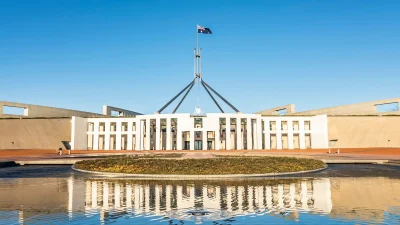Are climate change ETFs greenwashing?


Impact-focused climate change exchange traded funds (ETFs) have finally hit the market in Australia, but there are still questions over the amount of carbon emitted within its holdings and whether the exercise is just more greenwashing that won’t have the impact investors desire.
VanEck launched the VanEck Vectors Global Clean Energy ETF (CLNE), while Betashares launched the Climate Change Innovation ETF (ERTH).
Money Management had previously compared what was in the ETFs and the returns of the indices both were based on, but not the carbon emissions of the companies held.
Arian Neiron, VanEck managing director - head of Asia Pacific, said investment providers should not be “cute” with marketing.
“You’ve got to really look at an investment, particularly from a portfolio construction perspective and say ‘what am I getting and is it true to label?’,” Neiron said.
Neiron said investors had to “look under the bonnet” and pointed to Tesla as an example of a classic greenwash.
“The big debate is now they’re holding bitcoin – now we all know bitcoin mining is one of the highest energy consumptions out there,” Neiron said.
“Arguably, if you’re driving a Tesla in Australia – how are you actually charging the battery? The irony is it is by a coal power station in the energy grid.
“We’re saying in terms of investors and advisers alike, be mindful of greenwashing, be very targeted in terms of what your investment is and align your values and your beliefs with that, but look under the bonnet because greenwashing is rife in this industry.”
Ilan Israelstam, BetaShares head of strategy, said a “mono-line focus” which compared carbon emissions of the companies inside the two funds was erroneous for an issue as nuanced as climate change.
“This is because this type of analysis focuses on the companies in the portfolio themselves rather than the goods and services they create,” Israelstam said.
“This is particularly the case for manufacturers and in particular where a fund is exposed to a wide range of sectors – for example, there may be more emissions from a particular process but that process could eventuate in goods or services that dramatically and positively effect emissions in a way that goes significantly beyond the companies manufacturing activities – for example, the benefit to society more broadly of electric vehicles versus the process of manufacturing those vehicles itself.”
Israelstam said the firm’s idea with ERTH was to include a “comprehensive set of solutions” for climate change.
“When considered more broadly, it is obvious how companies such as Hello Fresh and Docusign let us move away from the business as usual of even higher carbon intensity,” Israelstam said.
“So, in terms of a company like Docusign - avoiding paper consumption in a material way – think of all the printing of paper that would occur globally if not for Docusign – is a very effective climate change avoidance contributor.”
Israelstam noted a study on reduced consumption that showed on average, grocery meal greenhouse gas emissions were 33% higher than meal kits.
“And for Hello Fresh, reducing food waste is widely regarded as one of the most important ways to reduce our carbon footprint,” Israelstam said.
“Food waste is a gigantic problem for landfills and the associated methane output and having the correct sized food products helps that significantly.
“On Tesla, while our research partner for the ERTH index is absolutely keeping an eye on the bitcoin investment, the current belief is that a US$1.5 billion ($1.94 billion) investment in Bitcoin from a company valued at over US$600 billion is still outweighed by the very significant climate change avoidance that Tesla contributes to each and every time they sell an electric vehicle which leads to a polluting car being taken off the road.”
Comparison of carbon emissions (tons of CO2/million $ of sales) of CLNE and ERTH
CLNE
|
Company |
Weight (%) |
CO2/million $ of sales |
|
VERBUND AG |
5.04 |
53.33 |
|
Siemens Gamesa Renewable Energy, S.A. |
4.56 |
1.28 |
|
PLUG POWER INC. |
9.17 |
1.45 |
|
VESTAS WIND SYSTEMS A/S |
4.14 |
3.42 |
|
Orsted A/S |
3.83 |
19.36 |
|
MERIDIAN ENERGY LIMITED |
4.43 |
0.12 |
|
ENPHASE ENERGY, INC. |
5.51 |
5.31 |
|
SOLAREDGE TECHNOLOGIES, INC. |
3.57 |
7.23 |
|
SUNRUN INC. |
2.78 |
4.66 |
|
|
43.03% |
223.47 (normalised to 100%) |
ERTH
|
Company |
Weight (%) |
CO2/million $ of sales |
|
BALLARD POWER SYSTEMS INC. |
0.75 |
1.78 |
|
NIBE Industrier AB |
1.95 |
1.72 |
|
Azbil Corporation |
0.83 |
1.14 |
|
COMPAGNIE DE SAINT-GOBAIN SA |
4.40 |
200.04 |
|
ALSTOM SA |
2.02 |
4.60 |
|
Siemens Gamesa Renewable Energy, S.A. |
1.12 |
1.28 |
|
JOHNSON MATTHEY PLC |
1.27 |
32.74 |
|
A. O. SMITH CORPORATION |
1.28 |
6.88 |
|
BORGWARNER INC. |
1.78 |
4.35 |
|
East Japan Railway Company |
3.80 |
21.60 |
|
Infineon Technologies AG |
4.54 |
4.91 |
|
TRANE TECHNOLOGIES PLC |
4.98 |
8.63 |
|
KINGSPAN GROUP PUBLIC LIMITED COMPANY |
1.89 |
18.51 |
|
PLUG POWER INC. |
2.76 |
1.45 |
|
UMICORE SA |
1.62 |
27.58 |
|
VESTAS WIND SYSTEMS A/S |
3.37 |
3.42 |
|
MERIDIAN ENERGY LIMITED |
0.66 |
0.12 |
|
MERCURY NZ LIMITED |
0.39 |
49.11 |
|
SUEZ SA |
1.14 |
185.71 |
|
TESLA, INC. |
4.03 |
2.91 |
|
ENPHASE ENERGY, INC. |
2.54 |
5.31 |
|
KION GROUP AG |
1.05 |
8.55 |
|
PENTAIR PUBLIC LIMITED COMPANY |
1.46 |
4.43 |
|
SOLAREDGE TECHNOLOGIES, INC. |
2.03 |
7.23 |
|
SUNRUN INC. |
1.56 |
4.66 |
|
HelloFresh SE |
1.49 |
1.26 |
|
DOCUSIGN, INC. |
4.34 |
0.04 |
|
ZOOM VIDEO COMMUNICATIONS, INC. |
4.45 |
0.02 |
|
|
63.64% |
958.47 (normalised to 100%) |
Source: MSCI ESG Research. Holdings as at 10 March, 2021 obtained from FactSet. Carbon emissions defined as total carbon emissions divided by total sales (units: tons of CO2/million $ of sales). MSCI ESG Research only held nine companies in CLNE (out of 29) and 30 companies in ERTH (out of 90) covered.
Recommended for you
There has been a “noticeable uptick” in the use of smart beta ETFs by advisers and sophisticated investors, according to Betashares, who are using the vehicles to take control of their portfolio construction.
The FSC has announced 15 proposals ahead of the federal election which it hopes will increase the competitiveness of Australia’s financial services sector, including six with a focus on fund managers.
Regal Funds Management saw total net inflows of $2.1 billion during 2024, with flows primarily going into long/short equities and multistrategy vehicles.
There is growing divergence between institutional and retail investors in their enthusiasm towards equities, according to Bank of America, with retail sentiment being “unusually low” at the start of 2025.















